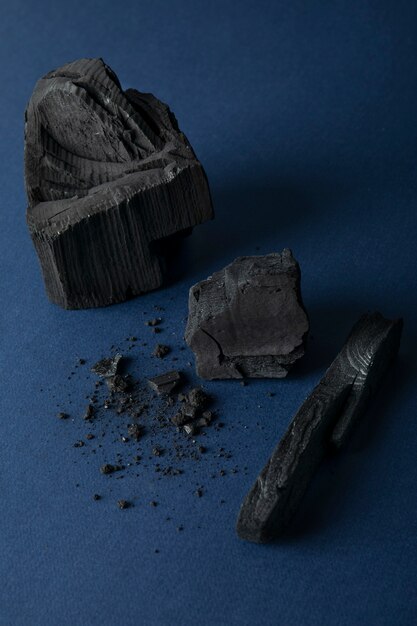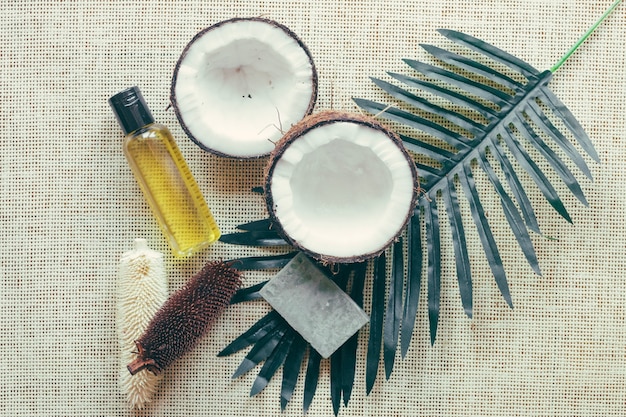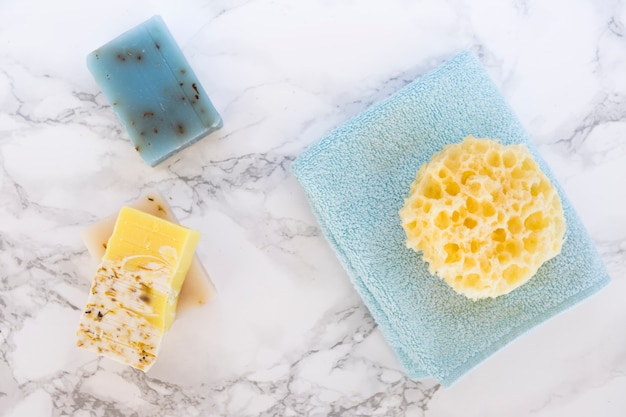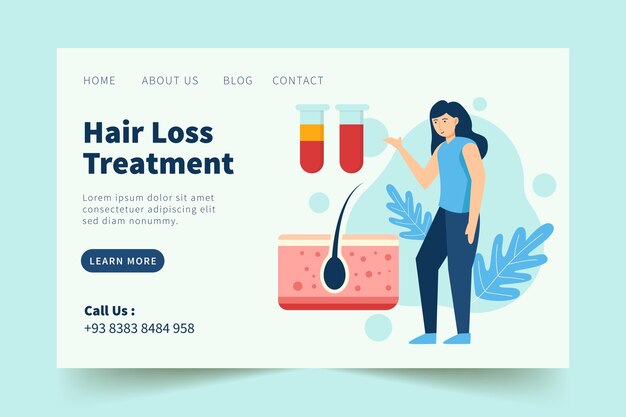
Apple cider vinegar (ACV) is more than just a simple salad dressing. It’s packed with raw enzymes and beneficial bacteria that help with digestion, weight loss, and cholesterol levels. Moreover, it serves as an affordable, natural, and organic treatment for various skin and hair problems. Regardless of your hair type, apple cider vinegar can be a valuable addition to your hair care routine.
Here are 10 reasons why using an apple cider vinegar hair rinse can be beneficial:
1. Balance Hair & Sebum pH:
Our hair and scalp’s natural oil, called sebum, have a pH level between 4.5 and 5.5. This acidity helps protect against fungal and bacterial growth, promoting healthy hair and skin. Many shampoos disrupt this pH balance, affecting hair cuticles and scalp condition. Apple cider vinegar, high in acetic acid, has a pH similar to human hair. Regular rinsing with ACV can help restore the scalp and hair to their ideal acidity, especially for oily hair.
2. Antibacterial and Antifungal Properties:
The acetic acid in apple cider vinegar acts as a powerful antimicrobial agent, fighting bacteria and fungi that cause dandruff and hair loss. Using an ACV rinse as a preventative measure maintains the scalp’s natural pH, creating an environment hostile to bacteria and fungi. Regular weekly rinsing has provided relief to many dandruff sufferers, reducing flaking.
3. Cleansing and Clarifying:
Using various hair products like serums, gels, sprays, and masks leads to product build-up, leaving hair flat and lifeless. Apple cider vinegar helps remove this residue, restoring vitality to your hair. Letting ACV sit in the hair for at least three minutes helps break down the residue’s molecular structure, making it easier to rinse away.
4. Add Natural Body & Define Curls:
According to The Curl Manual, an apple cider vinegar rinse can enhance the bounce of your curls. Unlike conventional shampoo and conditioners, ACV won’t weigh down hair strands, promoting natural body and movement. You might also reduce the need for heating and styling tools, preventing further hair damage.
5. Detangle:
Apple cider vinegar is an excellent natural detangler, often used as a conditioner alternative. Its natural acidity smooths the hair cuticle, making it easier to untangle knots and allowing brushes to glide through more smoothly.
6. Reduce Frizz:
Frizzy hair occurs when hair cuticles lift. Apple cider vinegar smooths down the cuticles, resulting in a smoother, frizz-free mane.
7. Add Shine:
The position of the cuticle affects how well hair reflects light. After an ACV rinse, the cuticle lies down, enhancing light reflection and giving hair a glossy, healthy look.
8. Reduce Hair Porosity:
Normal hair absorbs necessary moisture while porous hair absorbs and loses moisture quickly. High porosity results from chemical treatments and environmental damage, causing gaps in the hair surface. While you can’t change hair porosity, an ACV rinse can flatten the cuticle and reduce gaps, protecting hair from further damage. To test porosity, drop a clean hair strand in water. If it sinks immediately, it’s highly porous. If it floats midway, it’s of normal porosity. If it stays near the top before sinking, it’s low porosity.
9. Stimulate Hair Growth & Prevent Hair Loss:
Apple cider vinegar improves blood circulation to hair follicles, essential for hair growth and preventing hair loss. Better blood flow brings vital nutrients to hair follicles, strengthening roots and promoting growth.
10. Prevent Split Ends & Breakage:
Regular ACV rinses help remove tangles, close cuticles, improve porosity, and strengthen hair strands, leading to fewer split ends and less breakage.
Choosing an Apple Cider Vinegar:
Look for organic, raw, and unfiltered apple cider vinegar to reap the health and beauty benefits. Cloudy vinegar with sediment known as ‘The Mother’ contains beneficial bacteria and enzymes. Bragg’s Apple Cider Vinegar is a reputable brand available in most grocery and health food stores.
How To Do an Apple Cider Vinegar Hair Rinse:
1. Mix one cup of water with two to four tablespoons of ACV.
2. After shampooing, pour the mixture over your scalp and hair, avoiding your eyes.
3. Massage it into your scalp to stimulate circulation and hair growth.
4. Rinse out the vinegar after one to two minutes.
For dry hair, start with two tablespoons of vinegar per cup of water. For oily hair or dandruff, use three to four tablespoons. Adjust the blend as needed over time. Use this rinse anywhere from once a month to twice a week, with weekly being recommended for most issues.
Adding Herbs To Your Rinse:
Enhance your ACV rinse with herbs to target specific hair issues or improve color.
– To make an herb-infused vinegar, add two cups of ACV and one cup of chopped herbs to a glass jar. Let it steep for two weeks in a dark place before straining into a clean bottle. It will keep for six months to a year.
– Mix two to four tablespoons of this herbal vinegar with one cup of water for the rinse.
Herbs for Richer Hair Tones:
– Rosemary or parsley for dark hair.
– Sage to cover grey hair.
– Chamomile for natural highlights on blonde or light brown hair.
– Rosehips for enhancing red hair.
Herbs for Specific Hair Problems:
– Calendula for dry hair.
– Linden for frequently shampooed hair.
– Nettle for dandruff.
– Lavender for fragrance.
Adding Essential Oils:
Essential oils can mimic the effects of herbs without the infusion time.
– Mix two cups of ACV with 5 to 10 drops of essential oil. Store in a cool, dark place for up to twelve months. Dilute two to four tablespoons of this mix with one cup of water before use.
Essential Oils for Hair:
– Cedarwood or Clary sage for stimulating the scalp and promoting hair growth.
– Chamomile for shine, softness, and soothing the scalp.
– Geranium for strengthening hair.
– Lavender for deep conditioning, shine, fragrance, and dandruff control.
– Rosemary for stimulating roots, enhancing hair growth, and improving scalp circulation.
– Sandalwood for dry ends and fragrance.
– Tea tree oil for controlling oily hair.



